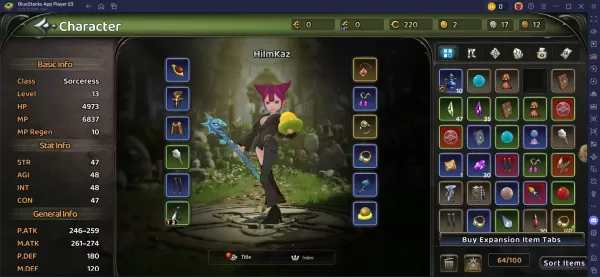Ubisoft has once again activated the Animus, this time transporting players to Japan's Sengoku Period with Assassin's Creed Shadows. This installment introduces us to historical figures from 1579, including Fujibayashi Nagato, Akechi Mitsuhide, and the intriguing Yasuke – the African samurai who served Oda Nobunaga. As with previous games, these historical characters are seamlessly integrated into a narrative that blends fact with fiction, crafting a gripping tale of revenge, betrayal, and murder. While the storyline may humorously exaggerate elements like Yasuke needing to kill for XP to wield a gold-tier weapon, it remains a testament to the series' signature style of historical fiction.
Assassin's Creed is renowned for its approach to historical fiction, where it fills in historical gaps to weave science fiction conspiracy tales about a secret society aiming to dominate the world with the powers of a pre-human civilization. Ubisoft's meticulous research ensures that the open-world settings are deeply rooted in history, but it's crucial to recognize that these games are not history lessons. The developers frequently adapt historical facts to better fit their narratives, creating a rich tapestry of alternate history.
Here are ten memorable instances where Assassin's Creed has creatively rewritten history:
The Assassins vs Templars War

The ongoing conflict between the Assassins and Templars is a cornerstone of the series, yet there's no historical evidence to support such a war. Both the Order of Assassins and the Knights Templar existed during the same period, from the late 11th to the early 14th century, but their interactions were limited to the Crusades. The notion of a centuries-long ideological battle between these groups is purely fictional, inspired by conspiracy theories surrounding the Templars.
The Borgias and their Superpowered Pope

In Assassin's Creed 2 and Brotherhood, the Borgia family, particularly Cardinal Rodrigo Borgia who became Pope Alexander VI, is portrayed as the Templar Grand Master. This narrative, including the fictional plot to harness the magical Apple of Eden and Ezio's confrontation with the Pope, diverges significantly from historical reality. While the Borgias were known for their controversial actions, the game's depiction of them as villainous schemers oversimplifies and exaggerates their historical roles.
Machiavelli, Enemy of the Borgias

Assassin's Creed 2 and Brotherhood depict Niccolò Machiavelli as Ezio's ally and leader of the Italian Assassins. Historically, Machiavelli's political views on authority clash with the Assassin's Creed ideology, and he had a more complex relationship with the Borgias. He served as a diplomat under Cesare Borgia and respected his leadership, contrary to the game's portrayal of him as an enemy of the Borgias.
The Incredible Leonardo da Vinci and his Flying Machine

Assassin's Creed 2 showcases a close friendship between Ezio and Leonardo da Vinci, accurately capturing da Vinci's charismatic nature. However, the game alters da Vinci's timeline to align with Ezio's journey, having him move from Florence to Venice earlier than he did historically. Moreover, while da Vinci's designs for machines like a tank and a flying machine are brought to life in the game, there's no evidence these were ever built, let alone flew over Venice.
The Bloody Boston Tea Party

The Boston Tea Party, a pivotal event of the American Revolution, was historically a non-violent protest. In Assassin's Creed 3, however, it's depicted as a violent confrontation with protagonist Connor leading the charge in Native American attire, resulting in numerous casualties. This dramatic reinterpretation also attributes the planning to Samuel Adams, despite historical ambiguity about his involvement.
The Lone Mohawk

Connor, the protagonist of Assassin's Creed 3, is a Mohawk who allies with the Patriots, contrary to the Mohawk's historical alliance with the British during the Revolutionary War. While there were rare instances of Mohawks fighting against the British, such as Louis Cook, Connor's portrayal as a Patriot supporter challenges historical norms and offers a "what if?" scenario that the series often explores.
The Templar Revolution

Assassin's Creed Unity's depiction of the French Revolution suggests that the Templars orchestrated the entire event, including a manufactured food crisis. Historically, the revolution was the result of multiple factors including natural disasters and economic issues. Unity's narrative oversimplifies the complex causes of the revolution and portrays the Reign of Terror as the entirety of the event, rather than just one aspect.
The Controversial Killing of King Louis 16

The execution of King Louis 16 during the French Revolution is a key moment in Assassin's Creed Unity. The game portrays the vote on his execution as a close call, swayed by a Templar conspirator, which misrepresents the historical majority vote in favor of execution. Unity also downplays the King's attempt to flee and the widespread public anger towards the aristocracy, presenting a skewed view of the revolution's causes.
Jack the Assassin

Assassin's Creed Syndicate reimagines Jack the Ripper as a rogue Assassin trying to seize control of the London Brotherhood. Historically, Jack the Ripper was a notorious serial killer whose identity remains unknown. The game's narrative, where Jack trains under Jacob Frye and is eventually killed by Evie, is a creative twist on the unsolved mystery of the Ripper's crimes.
The Assassination of the Tyrant Julius Caesar

The assassination of Julius Caesar is a well-documented event, yet Assassin's Creed Origins reimagines it as a plot against a proto-Templar leader. The game's portrayal of Caesar as a tyrant opposed to the people's interests contradicts his historical efforts to redistribute land to the poor. Furthermore, the game's depiction of the aftermath as a victory for the Assassins ignores the historical reality that Caesar's death led to the collapse of the Roman Republic and the rise of the Roman Empire.
The Assassin's Creed series meticulously crafts its worlds with authentic historical elements, yet it often bends historical accuracy to serve its narrative. This approach is fitting for a series that thrives on historical fiction, not documentary. What are your favorite instances of Assassin's Creed's creative liberties with history? Share your thoughts in the comments below.









